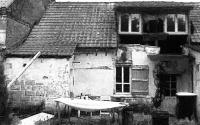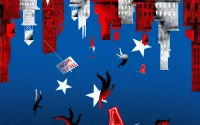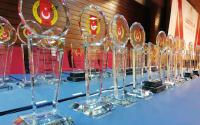6 February 2006Open DemocracyMurat Belge
Five newspaper columnists go on trial in Istanbul tomorrow, 7 February, charged with insulting Turkey's judiciary and trying to influence the course of an ongoing case. I am one of them along with Hasan Cemal, İsmet Berkan, Haluk Şahin and Erol Katırcıoğlu. Ours is only one of a large number of similar cases. Amnesty International has counted nearly sixty.
What is going on? How is it that a country that has just succeeded in persuading the European Union to begin negotiations on its joining Europe should be burdening itself with trials that so obviously challenge freedom of expression?
The government, when pressured especially by the foreign media and writers' organisations about the abundance of court cases, retorts with a cliché: that "the judiciary is independent in Turkey". However, this is getting to sound more and more like someone declaring: "the man-eating tigers are independent in Bengal". The other day, one bureaucrat rather extraordinarily warned foreign observers of Turkey not to judge the judiciary by the number of trials it starts, but by the number of condemnations it makes. Apparently, although "many are called" to court, the gate being fortunately "narrow", not as many will be sent to the other side.
The fact that "few are chosen" may be comforting. But the discrepancy between prosecution and conviction indicates that something is not quite right in the juridical domain.
For example, one interesting case concerns two professors, Baskın Oran and İbrahim Kaboğlu, who are now awaiting trial. They were asked to work for the Committee of Human Rights established by the office of the prime minister, Recep Tayyip Erdogan. The government asked them for a report on identity questions in Turkey. Their argument was that "Turk" is an identity of one ethnic group (albeit much the largest) and that the country also includes other ethnic groups such as "Kurd" or "Arab". Therefore Türkiyeli (Türkiye being the name of the country) should be the "higher" identity. In this way they sought to create a nuance between "Turkish" and "of Turkey". The idea was to find the equivalent of a neutral term, like "British" or "the United Kingdom", one that can accommodate the identities of "English", "Scottish", and "Welsh" people.
The proposal, like any proposal, is debatable. However, quite remarkable events took place after the report was published. Some members of the committee protested. One, who had been usually conspicuous by his absence, suddenly appeared in a session, grabbed the document, tore it up and trampled on it.
Even this could be accepted, perhaps, as a rather heated "civil" reaction. But then a prosecutor decided to open a case charging the two professors with dividing the Turkish nation.
The law against thinking
A similar recourse to law to try and use the state to suppress thought has been deployed in the case we are involved in. On 24-25 September 2005, for the first time in Turkish history, a conference was organised in Istanbul to discuss the tragedy of the Armenian massacre of 1915: "Ottoman Armenians During the Decline of the Empire: Issues of Scientific Responsibility and Democracy". There have been countless meetings and conferences in Turkey about Armenians murdering Turks, or behaving like traitors, but not one of this kind.
Several academics from three universities – Bosphoros, Sabancı and Bilgi – had come together to organise the conference. The aim had been to hold it in the Bosphoros University in May 2005. But Şükrü Elekdağ, a retired diplomat and Social Democratic Party member of parliament, made a speech attacking the conference; he was echoed by the minister of justice, Cemil Çiçek. Both men branded the event as "treason", "stabbing the nation in the back". Various rightwing groups then declared their intention of forcing their way into the conference. The rector of the university was informed by the governor of Istanbul that no guarantees could be given about the security of the conference. Under the circumstances, the rector had little choice but to postpone the meeting.
After much protest, the conference was finally held in September, but not without further problems and obstructions. Minutes before the end of the working day on a Thursday evening, a formal notice from the fourth administrative court of Istanbul notified the rector's office of Bosphoros University (where the meeting had been scheduled for the next morning) that it had to be postponed temporarily. On the evening news we learnt that a "civic organisation" called the jurists' union had applied to this court to stop the conference and that the court had agreed to the contents of the plea. The decision had actually been taken a few days before but deliberately delayed to leave no time for an appeal.
In Turkey the administrative courts make decisions about administrative procedures that may be contrary to law and cause damage to the object of the administrative act. In this case, no person was going to be damaged by the conference. However, the plaintiff, that is the jurists' union, argued that the damaged party would be the nation's reputation. Incredibly, the court decided the conference needed to be postponed until an "investigation" of this alleged damage was completed. The court decided:
"ON BEHALF OF THE TURKISH NATION, to ask the convenors (or the hosts) whether the conference was planned in a way so as to allow all parties with varying viewpoints about the question to participate in it, whether people representing different views were invited ... If the conference had been organised on the basis of narrower participation, how were the participants selected (this to be accompanied by applications, academic CVs, list of publications and references); to ask how the expenses of transportation and accommodation of the speakers and the participants were to be met and if they are not met by the said universities or participants, who are the sponsors and how is this relationship determined (this to be accompanied by a list of the sponsors endorsed by a notary)."One of the three judges disagreed with the decision. He pointed out that there was no administrative action that could be the subject of such a case and therefore the plea should be rejected without any investigation.
The text of this decision endorsed by the other two judges was quite transparent. Below its surface the wording of the plea presented by the jurists' union was quite visible. They are "denialists" of the Armenian massacres. Now, they claim to have become devout followers of democracy and pluralism and wanted to participate in the conference – though those of their persuasion had not invited anyone of an opposing opinion to the hundred-odd meetings they had held on the issue down the years.
Their demand would be the equivalent of trying to hold a scientific meeting on Darwin's theory of evolution by trying to "reach truth" through a debate between evolutionists and creationists who think God created the world in seven days. However, the court accepted even this objection and made the issue of "varying viewpoints" one of the points of its investigation.
The money question is always important. The jurists' union was naturally curious about "the source of the money" – who are the enemies of Turkey? Is the money coming from Armenia? The administrative court saw nothing harmful in legalising these questions by its own decision.
In fact, it was not a costly meeting at all; people were coming from abroad, travelling at their own expense (some of them for the second time), and staying at friends' homes or university hostels.
The jurists' union had made its points and found a court ready to share its concern. But it overlooked a detail. It had forgotten that there were three universities supporting the conference; only two of them, Bosphoros and Sabancı, received the notice, while nothing was sent to the third one, Bilgi University. Thanks to this, the conference was held there – not on Friday morning (24 September) as had been planned originally, but on Saturday and Sunday.
The two universities that received the decision about postponement appealed to a higher court as soon as they could and sent along the lengthy list of documents demanded by the court. The higher court repealed the decision unanimously, one week later – but by then, of course, the conference had already been held.
In the meantime, some newspaper columnists, myself among them, had expressed amazement at the fact that the fourth administrative court had taken the decision in the first place. We pointed to the bizarre possibilities it opened up of administrative courts passing decision on the eligibility of participants on conferences – ranging from Aztec architecture to the interrelations of glandular secretion with varicose expansion, or of judicial investigations into whether "different points of view" were represented about the influence of the battle of Waterloo in the course on European history.
For this, we five have in turn been charged.
The light of scrutiny
For me, a key issue is what happens when the law is battered by men of the law. The current trial is also a consequence of a plea originating from the jurists' union. Those behind it seem to be delighted that across the European Union such trials are seen as evidence that Turkey is too "Islamic" to be a candidate for membership.
But in fact those behind the trials are secular nationalists trying to defend an idea of a greater Turkey that has nothing to do with Islamic sentiments. The ideology that inspires them is a classic, anti-democratic, authoritarian impulse which in Turkey emanates from what we call the derin devlet ("deep state") and its militaristic traditions. They are very persistent and determined, but in today's world they will wither in the glare of public scrutiny – which is why they need to be dragged up from the depths and exposed to the light.
Murat Belge, one of the Turkish journalists facing trial in Istanbul over public discussion of the 1915 Armenian massacres, sees his case as an emblem of Turkey's struggle against the country's anti-democratic "deep state".






